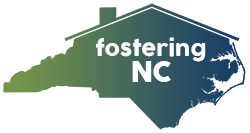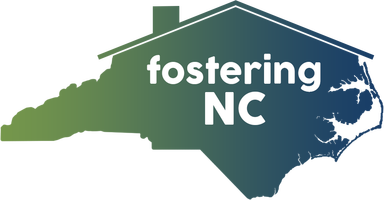Kinship Care

This page features a collection of courses and other resources of special interest to kinship caregivers.

On-Demand Courses
Critical Partners for Permanency [UNC]
This course explains why North Carolina prefers to achieve permanence through reunification or kinship care, the importance of shared parenting and helping youth maintain connections with people that matter to them, and the role kinship care can play in achieving permanence.(1 hr.)
This course explains why North Carolina prefers to achieve permanence through reunification or kinship care, the importance of shared parenting and helping youth maintain connections with people that matter to them, and the role kinship care can play in achieving permanence.(1 hr.)
Guardianship, Pathway to Permanence [UNC]
This course provides North Carolina resource parents information about guardianship, which is a route to permanence for some youth in foster care.
(1 hr.)
This course provides North Carolina resource parents information about guardianship, which is a route to permanence for some youth in foster care.
(1 hr.)
Supporting Kinship and Kin-Like Caregivers [UNC]
In this course, participants will learn about what kinship and kin-like care is and how it benefits children and families. Participants will also learn about what it means to be a licensed kinship caregiver and what resources are available through the use of scenarios and videos from those with lived experience.
(2 hr.)
In this course, participants will learn about what kinship and kin-like care is and how it benefits children and families. Participants will also learn about what it means to be a licensed kinship caregiver and what resources are available through the use of scenarios and videos from those with lived experience.
(2 hr.)

Videos/Podcasts/Webinars
Training Series: Coping With the Unique Challenges of Kinship Care [Annie E. Casey Foundation]
Video series featuring Dr. Joseph Crumbley explains public and private kinship care, information about the benefits of kinship care, and the types of children in kinship care settings. (video length varies)
Video series featuring Dr. Joseph Crumbley explains public and private kinship care, information about the benefits of kinship care, and the types of children in kinship care settings. (video length varies)

Articles
Fostering Perspectives (Kinship Issue • vol. 24, no. 1)
This issue of NC’s publication for resource parents focuses on kinship caregivers and the vital role they play. Articles in this issue include:
This issue of NC’s publication for resource parents focuses on kinship caregivers and the vital role they play. Articles in this issue include:
- NC’s Child Welfare System: An Introduction for Kin Caregivers
- Licensed Kinship Care in NC
- Parenting a Child with Complex Trauma as a Kinship Caregiver
- Self-Care is a Must for Kinship Caregivers
- Providing Kinship Care Outside the Child Welfare System? You Are Not Alone
- Holiday Tips for Kinship Caregivers
- Lessons from My Kinship Care Journey
Grandparents Raising Grandchildren
Provides insight into the challenges and benefits of raising grandchildren. Additionally, this resource provides helpful tips to better navigate parenting.
The mission of Generations United is to improve the lives of children, youth, and older people through intergenerational collaboration, public policies, and programs for the enduring benefit of all.
Provides insight into the challenges and benefits of raising grandchildren. Additionally, this resource provides helpful tips to better navigate parenting.
The mission of Generations United is to improve the lives of children, youth, and older people through intergenerational collaboration, public policies, and programs for the enduring benefit of all.

Resources
Generations United
The mission of Generations United is to improve the lives of children, youth, and older people through intergenerational collaboration, public policies, and programs for the enduring benefit of all.
The mission of Generations United is to improve the lives of children, youth, and older people through intergenerational collaboration, public policies, and programs for the enduring benefit of all.
Grandfamilies.org
Serves as a national legal resource in support of grandfamilies within and outside of the child welfare system. The organization works to educate individuals about State laws, legislation, and policy in support of grandfamilies and assist policymakers, advocates, caregivers, and others.
Serves as a national legal resource in support of grandfamilies within and outside of the child welfare system. The organization works to educate individuals about State laws, legislation, and policy in support of grandfamilies and assist policymakers, advocates, caregivers, and others.
Kinship Care Toolkit
A toolkit from the NY Office of Addiction Services and Supports to support individuals caring for children impacted by parental addiction and/or overdose. Provides information on subjects such as grief, identifying red-flag behavior in youth, having age-appropriate discussions, and self-care for kinship care providers. Inludes interactive exercises for children in kinship care to help express their feelings and promote positive thinking and self-image.
A toolkit from the NY Office of Addiction Services and Supports to support individuals caring for children impacted by parental addiction and/or overdose. Provides information on subjects such as grief, identifying red-flag behavior in youth, having age-appropriate discussions, and self-care for kinship care providers. Inludes interactive exercises for children in kinship care to help express their feelings and promote positive thinking and self-image.
Creating a Family’s Legal Options for Kinship Caregivers
This comprehensive and interactive resource developed by Creating a Family provides kinship caregivers in North Carolina critical information about their legal options through the use of testimonials, videos, and a customized learning experience.
This comprehensive and interactive resource developed by Creating a Family provides kinship caregivers in North Carolina critical information about their legal options through the use of testimonials, videos, and a customized learning experience.
Kinship Foster Care and Guardianship Assistance (KinGAP)
Concisely explains the difference between licensed and unlicensed kinship foster care, defines guardianship, and outlines the eligibility requirements for NC’s Kinship Foster Care and Guardianship Assistance Program (KinGAP).
Concisely explains the difference between licensed and unlicensed kinship foster care, defines guardianship, and outlines the eligibility requirements for NC’s Kinship Foster Care and Guardianship Assistance Program (KinGAP).
KinGAP Comparison Chart for Caregivers
Answers common questions about the important differences in North Carolina between unlicensed and licensed kinship foster care, legal custody, legal guardianship, and adoption.
Answers common questions about the important differences in North Carolina between unlicensed and licensed kinship foster care, legal custody, legal guardianship, and adoption.
Know Your Options
This resource guide from the NC Division of Social Services is designed to help kinship caregivers understand the system and the foster care, reunification, adoption, and legal guardianship processes. It provides the information you need to make an informed decision about what is right for your family.
This resource guide from the NC Division of Social Services is designed to help kinship caregivers understand the system and the foster care, reunification, adoption, and legal guardianship processes. It provides the information you need to make an informed decision about what is right for your family.
NC Division of Social Services Kinship Care Page
Provides resources and answers for North Carolinians thinking about caring for a relative’s child and/or becoming licensed to provide foster care.
Provides resources and answers for North Carolinians thinking about caring for a relative’s child and/or becoming licensed to provide foster care.
NC GrandFacts: State Fact Sheet for Grandfamilies
This North Carolina specific fact sheet provides resources, support, information on financial assistance, and more for kinship families.
This North Carolina specific fact sheet provides resources, support, information on financial assistance, and more for kinship families.

